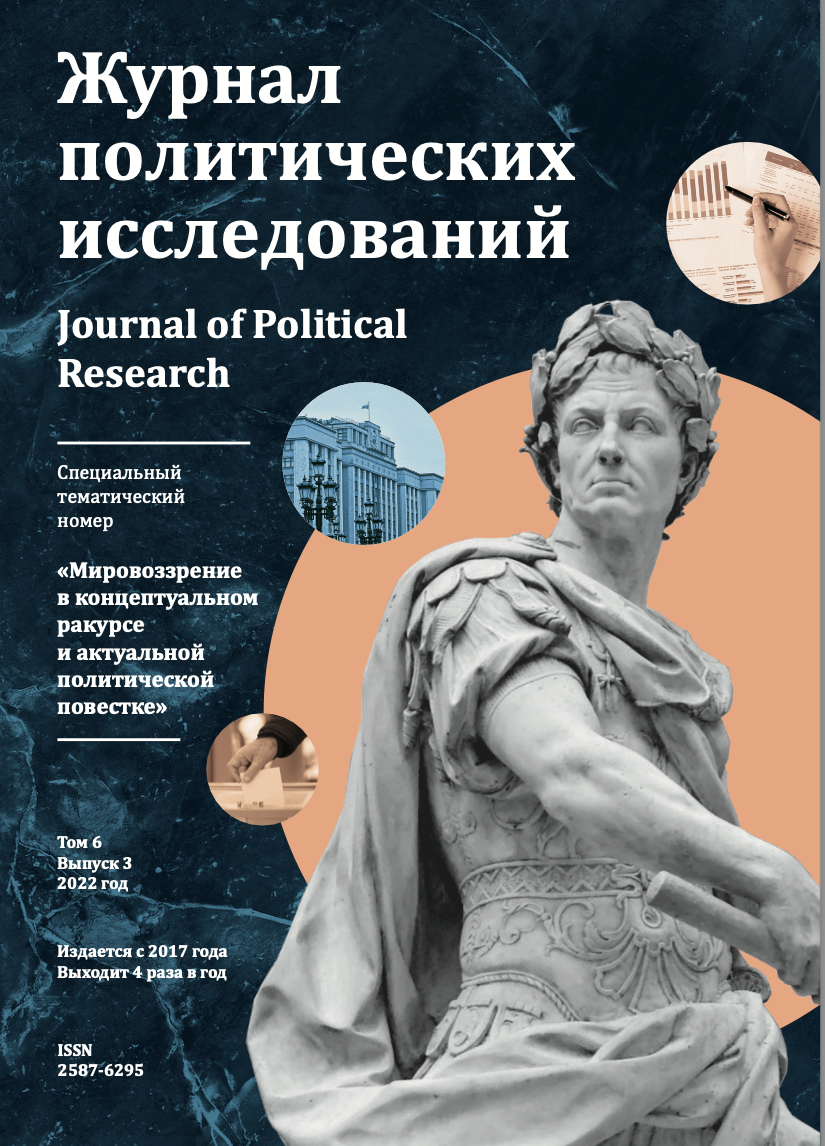UDC 341.01
Carl Schmitt’s intellectual legacy keeps attracting Russian jurists and social scientists for at least three decades. It would be unwise to give a similar comment on Georg Simmel’s legacy. Though, Simmel’s agenda is also no terra incognita in this country. Both in their respective world outlook and ideologically Schmitt and Simmel are worlds apart. At first sight, it would be impossible to find a common key which would enable a comparative analysis of their works. Nevertheless, formulating the purpose of the study, the author of the article found such a common denominator in the comparison of Schmitt's political concept "friend-enemy" and Simmel's sociological concept "friend-foe". The key research method is comparative analysis, which compares the two above-mentioned concepts. It is concluded that both concepts are instrumental, primarily in the field of international relations. The author holds that practically all sphere of international relations lends itself to the interplay of the said conceptions. Moreover, they can be applied for a proper investigation of the same international situation. For example, one international actor regards another one as its “existential enemy”. But the other one is not bound to lend itself to this status. The other one may discard the role the imposed “existential enemy” and regard the first one in the Simmel’s term of “stranger”. This term has no pejorative connotations, not even the aftertaste of unfriendliness. The theoretical significance of the research lies in the use of the concepts of Karl Schmitt and Georg Simmel to supplement the theory of international relations and international law with new conclusions and generalizations.
Carl Schmitt, the “friend – enemy” conception, Georg Simmel, the “familiar – alien” conception, legal theory, international relations, international law theory
1. Dostoevskiy F.M. Brat'ya Karamazovy. – M.: Hudozhestvennaya Literatura, 1973. - 835 s.
2. Korolev S.V. Binarnyy kod kak sociokul'turnaya matrica zapadnoevropeyskoy civilizacii: F. Nicshe, K. Shmitt, N. Luman // Pravo v kul'turnom izmerenii. Novye vektory razvitiya (pod obsch. red. V.N. Sinyukova i M.A. Egorovoy). – M.: Prospekt. – 2003. – S. 58-66.
3. Pushkin A.S. Sobranie sochineniy v 10 tomah. Tom Vtoroy. Stihotvoreniya 1823-36 godov. – M.: Gosudarstvennoe izdatel'stvo hudozhestvennoy literatury, 1959. - 782 s.
4. Fijalkowski J. Die Wendung zum Führerstaat: Ideologische Komponenten in der politischen Philosophie Carl Schmitts. – Köln: Westdeutscher Verlag, 1958. - 224 p.
5. Fukuyama F. The Ende of History and the Last Man. – N.Y.: Free Press, 1992. – 456 p.
6. Goethe J.W. Faust 1 - Hamburger Ausgabe Band 3. - München: dtv., 1982. – 211 p.
7. Helle H.J. Georg Simmel: Einführung in seine Theorie und Methode. – München, Wien: Verlag Oldenburg, 2001. – 212 p.
8. Henning Ch. Theorien der Entfremdung. Zur Einführung. – Hamburg: Junius Verlag, 2018. – 256 p.
9. Husserl E. Die Idee der Phänomenologie. Fünf Vorlesungen. – Haag: Martinus Nijhoff, 1950. – 94 p.
10. Larmore Ch. The Morals of Modernity. – Cambridge: Cambridge University Press, 1996. – 244 p.
11. Mosse G.L. The Crisis of German Ideology: Intellectual Origins of the Third Reich. – N.Y.: Grosset and Dunlap, 1964. – 396 p.
12. Musto M. Karl Marx’s Writings on Alienation: Critiquing Capitalism. – London: Palgrave Macmillan, 2021. – 196 p.
13. Schmitt C. Politische Theologie: Vier Kapitel zur Lehre von der Souveränität [1922]. 10-te Aufl. - Berlin: Duncker und Humblot, 2015. - P. 43.
14. Schmitt C. Der Begriff des Politischen. – München: Duncker und Humblot, 1932. – 88 p.
15. Schmitt C. Roman Catholicism and Political Form. Transl. by G.L. Ulmen. – Westport, London: Greenwood press, 1996. - 102 p.
16. Simmel G. Die Grundfragen der Soziologie. – Berlin, Leipzig: Göschen’sche Verlagshandlung, 1917. - 103 p.




















